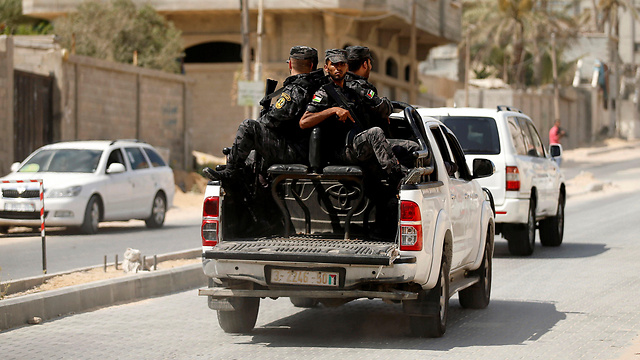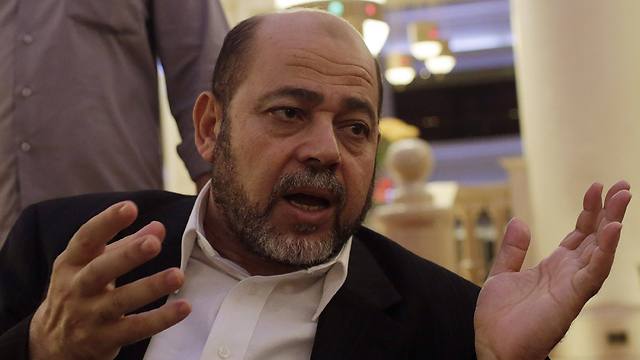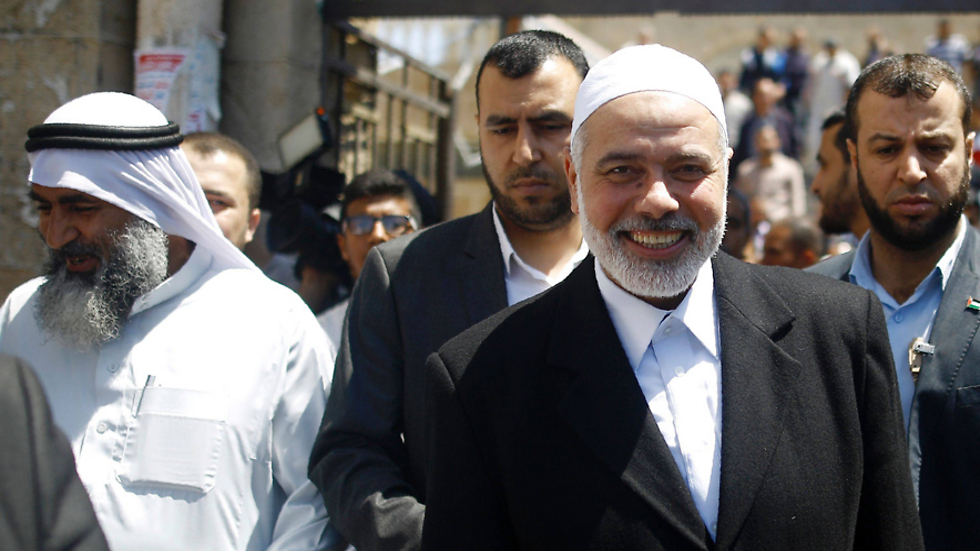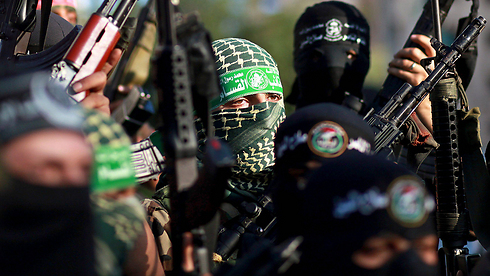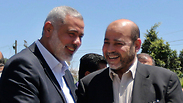
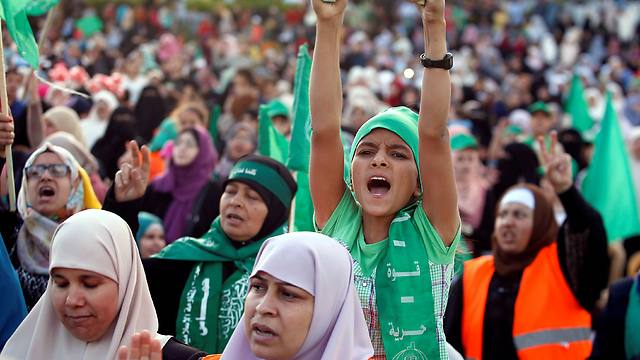
Election season is here— for the Palestinians
Hamas has decided to participate in local and municipal elections in the West Bank and will use its successes or failures there as a barometer to gauge Palestinian public opinion; meanwhile, internal Hamas elections are due to be held, potentially changing the face of the terrorist organization.
Two formative events are expected to soon take place in internal Palestinian politics, both of which are connected to Hamas. The first event is the municipal and local Palestinian Authority (PA) elections, which are expected to take place in October. The second are the internal Hamas elections, which will occur at the end of this year and determine the new political leadership.
Local Elections
The last time local elections were held in the areas the PA controlled was at the end of 2012. The split between Hamas and Fatah—and subsequent suspicion which followed—have led to elections in the Gaza Strip not being permitted.
In addition, Hamas boycotted the elections in the Strip, didn't provide a list of people who affiliate themselves with the organization, and called on people not to vote. This boycott created a situation wherein members of Fatah were running against one another in the elections, almost guaranteeing that Fatah would win control of the local councils and municipalities.
However, Hamas surprised everyone last week by suddenly allowing the elections for the purpose of determining the will of the people. The Islamist movement stressed the importance of equal opportunity, fairness, and respect for the election results.
Several days later, Hamas announced that it will indeed be running in the elections, but the name of the party on the ballots will be the "National Technocrat Party." The Technocrat Party list will be the exact same as the Hamas party list, but with no mention of the name Hamas.
Responses to this dramatic Hamas statement were soon in coming; the head of the Central Elections Committee, which is located in Ramallah, went to Gaza to meet with Hamas Prime Minister Ismail Haniyeh and discuss how the elections will be conducted in Gaza.
While the PA did in fact send a warm message welcoming the Hamas decision, behind closed doors, eyebrows were being raised at the surprising Hamas about-face.
There are a wide range of reasons for Hamas's decision to participate in the elections. The organization is closely following the poll numbers being released in the West Bank which show the loathing which the Palestinian public has for the PA and the lack of a real democratic process. Hamas has also noted some successes in the student elections in Palestinian universities across the West Bank over the past several months, including at Birzeit University and the Palestine Polytechnic University in Hebron, considered to the most prestigious Palestinian universities.
Hamas feels that they have the momentum in the West Bank and that there is no better experiment to test how much support the organization has in the West Bank than by participating in the municipal and local elections
However, the PA is worried following Hamas as it builds up its list for the elections. It's possible that various legal mechanisms will be used to try to disrupt Hamas, alongside the hope that the Israeli security apparatus will keep Hamas from raising its head too high.
Internal Elections
Hamas is moving on two parallel tracks – both internally and externally. Internally, elections are to be held which will determine who will lead the organization for the next four years. The newspaper Rai al-Youm exposed the fact that Khaled Mashal has decided to not run for re-election as chairman of the Hamas Politic Bureau. However, he has yet announced this officially. Mashal's position was almost undisputed in the organization, but his power was weakened following Operation Protective Edge and due to disagreements about managing the battle between the "external" leadership and the "internal" leadership.
Mashal's signals that he isn't finished necessarily in opening up the race to the men who will replace him as leader of the organization. (Ge announced in 2012 that he wouldn't run in the elections, but changed his mind at the last minute and won.)
Hamas has so far pointed out three people who may become the new leaders of the organization; Mousa abu Marzook, Ismail Haniyeh, and Yehya Sinwar.
Abu Marzook: The diplomat
Mousa Abu Marzook was the first person to hold the title of chairman of the Hamas Political Bureau in the early 1990s. He is viewed as a strategic thinker and has an extensive network of Islamist leaders in the Muslim and Arab world. His stong points are in his diplomatic capabilities, especially in terms of his good relationships with the political and military leadership in Egypt. The Egyptians also prefer to use Abu Marzook as a point of contact between them and Hamas.
Its for this reason that Abu Marzook has turned into the de facto connection between the two sides. He spends his time between his homes in Cairo and in Gaza.
.
In addition to his connections with the Egyptians, he also has good and direct relations with the Hezbollah and Iranian leadership. However, these relationships suffered a huge blow after an unknown source—but probably an Arab intelligence agency—leaked a wiretap in which Abu Marzouk allegedly attacked Iran and accused it of lying and not providing assistance to Hamas.
Abu Marzouk also has good relations with the Hamas military wing, which usually doesn't see eye to eye with the Political Bureau.
He is also responsible for the reconciliation agreement with Fatah and has made inroads with high ranking members of the leadership in Ramallah.
Haniyeh: High chance of success
Ismail Haniyeh is Hamas's current number 2 and the strongest and most dominant Hamas player in Gaza. He is thought of as being very charismatic and as a leader with the ability to whip up audiences with fiery and passionate speeches. He's a man who knows how to show off and market his modest lifestyle.
Haniyeh has created a system of relationships and trust with the rest of the Palestinian factions in Gaza, foremost with the Palestinian Islamic Jihad. Public opinion polls suggest that he has the best chances of winning the Palestinian presidential elections. He is an acceptable candidate for the Qataris (who are the primary funders of the reconstruction of Gaza), the Turks (Hamas's primary Islamist patrons), and even Iran.
Sinwar: The Hamas Defense Minister
Yahya Sinwar is one of the founders of the Hamas military wing. He was imprisoned during the First Intifada and was one of the high ranking officials who were released as part of the deal to free Gilad Shalit. Sinwar quickly rose through the ranks of the Hamas leadership and was chosen to be a member of the Hamas Poltiical Bureau in the 2012 elections.
At the same time, he deepened his connections with the military wing and became one of the closest people to Mohammad Deif, the head of the Hamas military wing. Deif used Sinwar to increase his influence (which was already significant) within the political wing. If one can call Deif the Hamas military chief of staff, then Sinwar is the defense minister.
Despite the fact that Mashal tends to be absent, he will still have a lot of influence in deciding who will replace them due to his relationship with the Shura Council, which is the organization that ultimately decides who becomes leader.
Some of the Hamas factions are stressing the importance of strengthening relations with regional actors—including Islamist and international actors. They argue that this is something that can only be done from a leader living outside the Strip. They also argue that a leader living outside of the Strip will be less exposed to the threat of Israeli assassination than they would be inside of Gaza, as highlighted by the failed Mossad attempt to assassinate Khaled Mashal in Jordan—an attempt which seriously harmed Israeli relations with the Hashemite Kingdom.
The Hamas political wing would prefer that the next leader be from within its ranks—such as Haniyeh or Abu Marzook—who would be able to whitewash the terrorist organization's actions. While Sinawar is indeed connected to the Political Bureau in practice, he is too affiliated with the military wing, a fact which will create a lot of opposition to his candidacy.
However, one must take into account the fact that he has a lot of strength and influence in the organization.
In any case, today—just months before the elections—it's impossible to predict who has the best chance of becoming the new leader of the terrorist organization.
.















